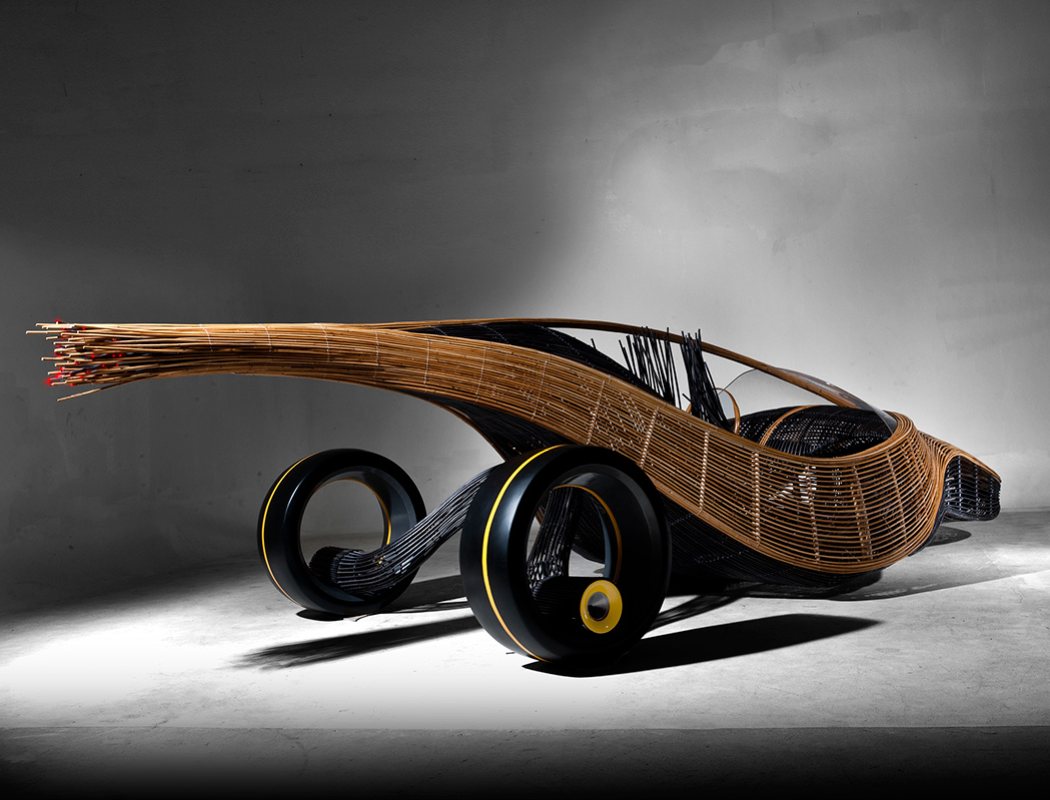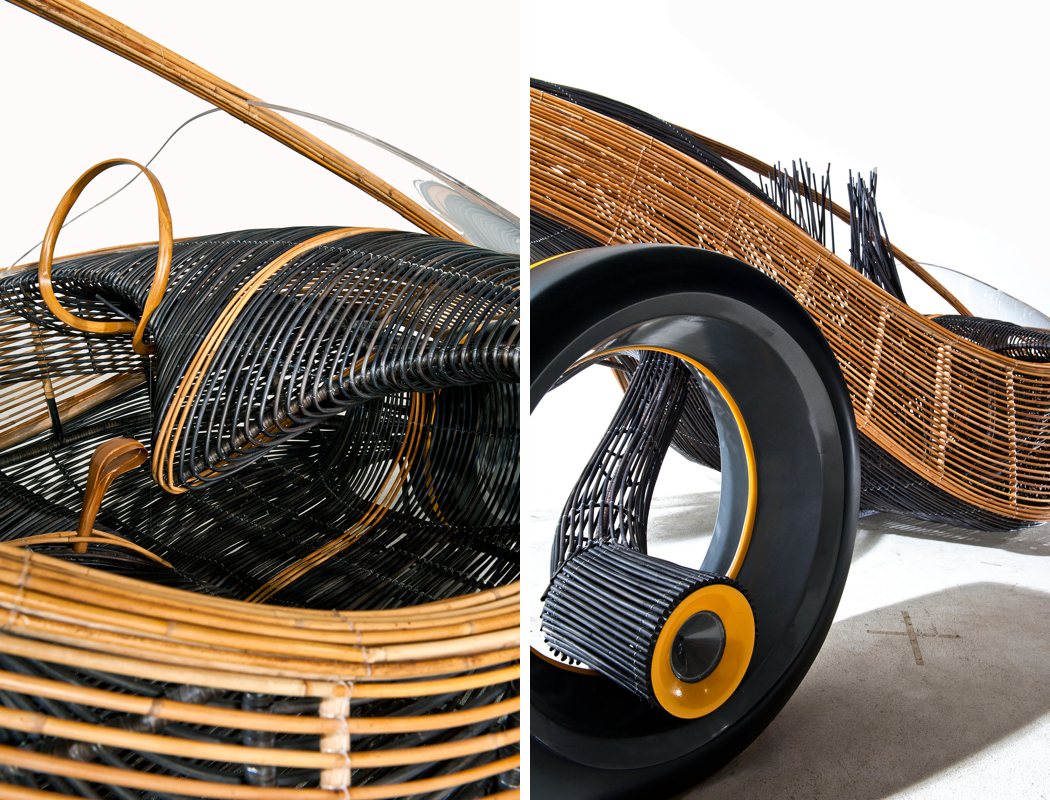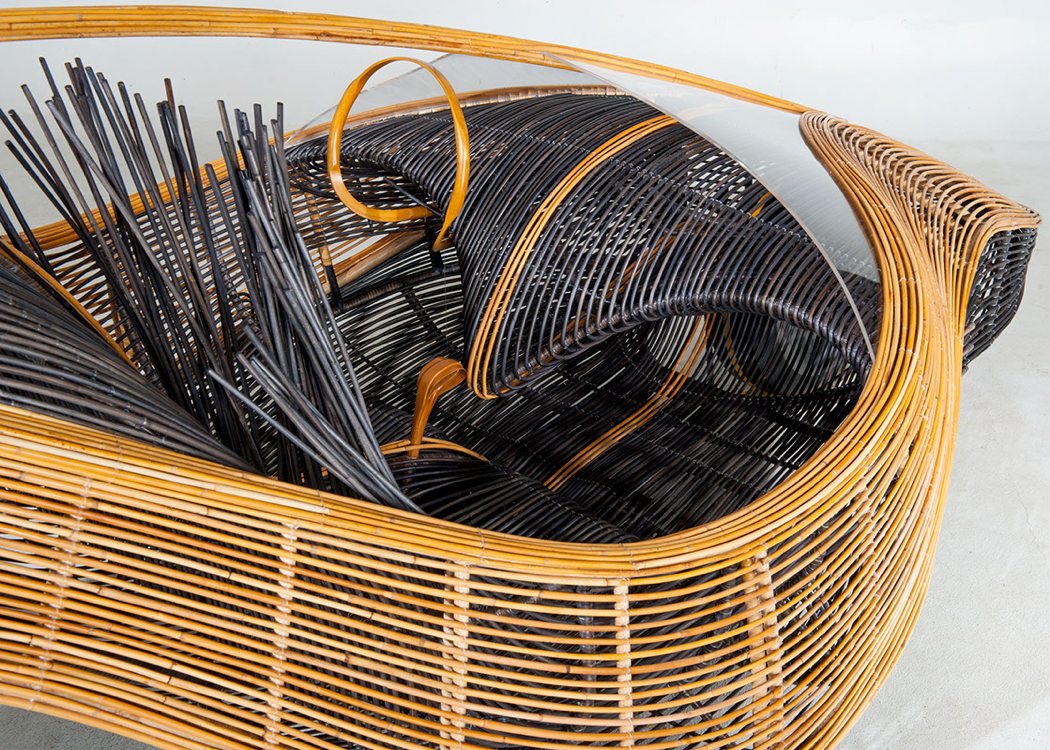
You’ve seen cars made of carbon fiber. Have you seen one made of bamboo-cane stalks?? The Phoenix does a pretty dapper job of pulling off an Automobile design with this natural material. It uses the cane’s flow-y form to create a car aesthetic that looks futuristic, yet indigenous! The Cane stalks are molded to build the car’s wonderfully aerodynamic contours, almost in a way that makes the car look like it’s travelling at super-speed!
While the car looks dreamy in its new avatar, it’s no secret that Cane is a brilliant material for automotive construction. It’s already seen furniture applications for centuries, so there’s nothing unnatural about the car being made with it. It can be molded in almost any shape, it has extremely high tensile strength as well as impact strength. It also ages beautifully, and is fire resistant. What more do you need!
Designer: Albrecht Birkner

The designers wanted to create a lightweight yet economically viable concept car made of bamboo, rattan, steel and nylon. Phoenix was constructed entirely handmade by a team of skilled weavers and craftsmen in only 10 days. This project attempts to unveil the future of green vehicles using woven skins from organic fibers mated to composite materials and powered by green technology.

Phoenix is inspired by forms and structures found in nature. Utilizing a single spine as found in vertebrae and plants, the concept car uses an exterior structure similar to a leaf. The interior stems from a single woven surface that starts from the front and forms the dashboard, floor and seats. The exterior weave flows around the shape and meets the interior lines in a single bundle comprising the tail.

Cars have always been a product of heavy industry using tremendous resources, expensive tooling and excessive energy. Phoenix challenges convention by sourcing renewable materials from the earth and using a frame that is built by hand using very minimal tools and energy. Today, cars are engineered and built so well that they actually outlive their purpose. People replace their cars every 5 years in industrial countries and 10-20 years in developing countries. Because of this, disposal becomes an environmental problem. Phoenix introduces the concept of a naturally woven skin which biodegrades together with the life of the car. Should a car’s life extend longer than average, this shell can be replaced inexpensively. No longer a product of automation, Phoenix brings back the dignity of the human being and pays homage to the skills of the craftsman. In addition, because it is handmade, frames can be customized according to the needs of the individual.
![]()











